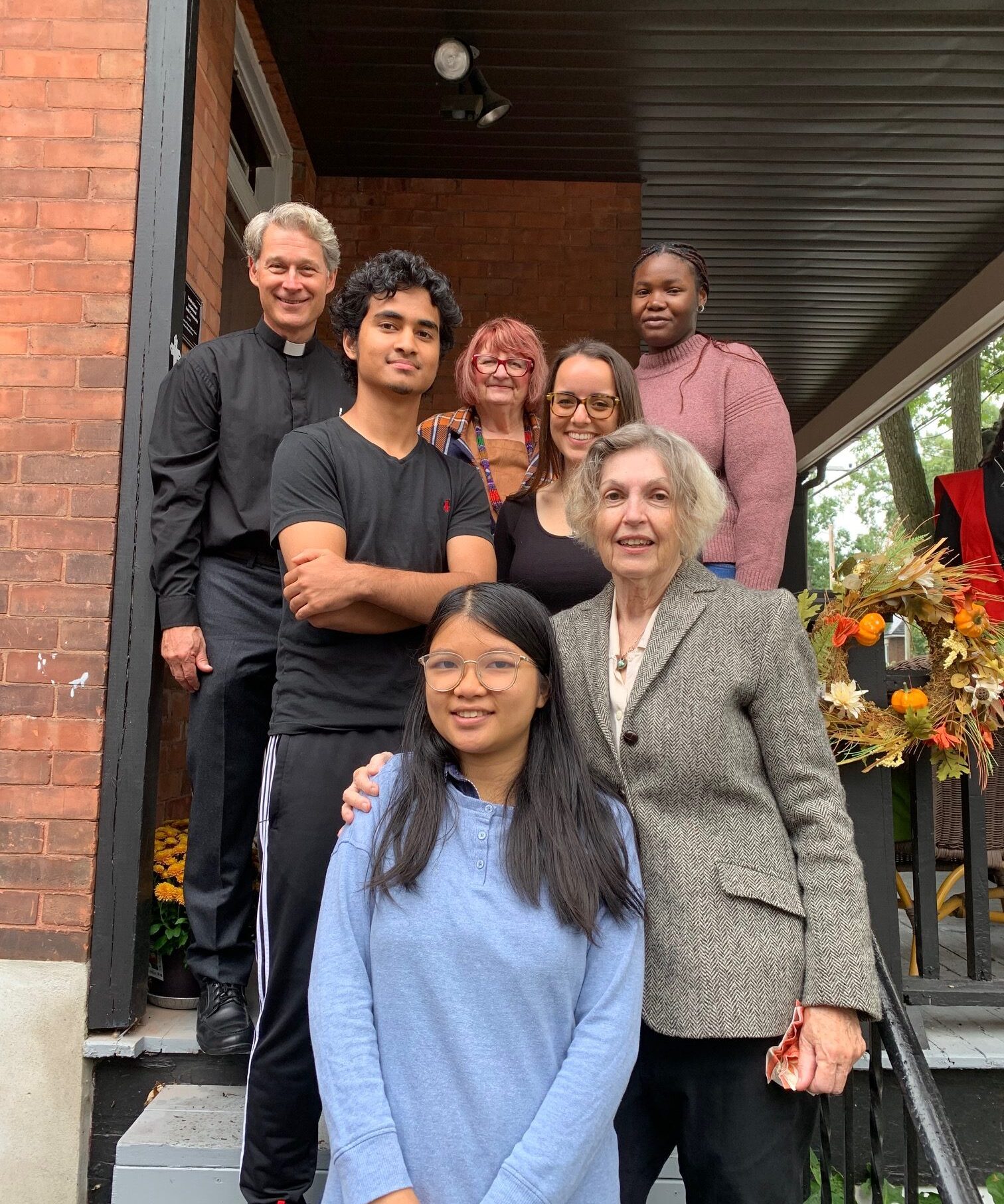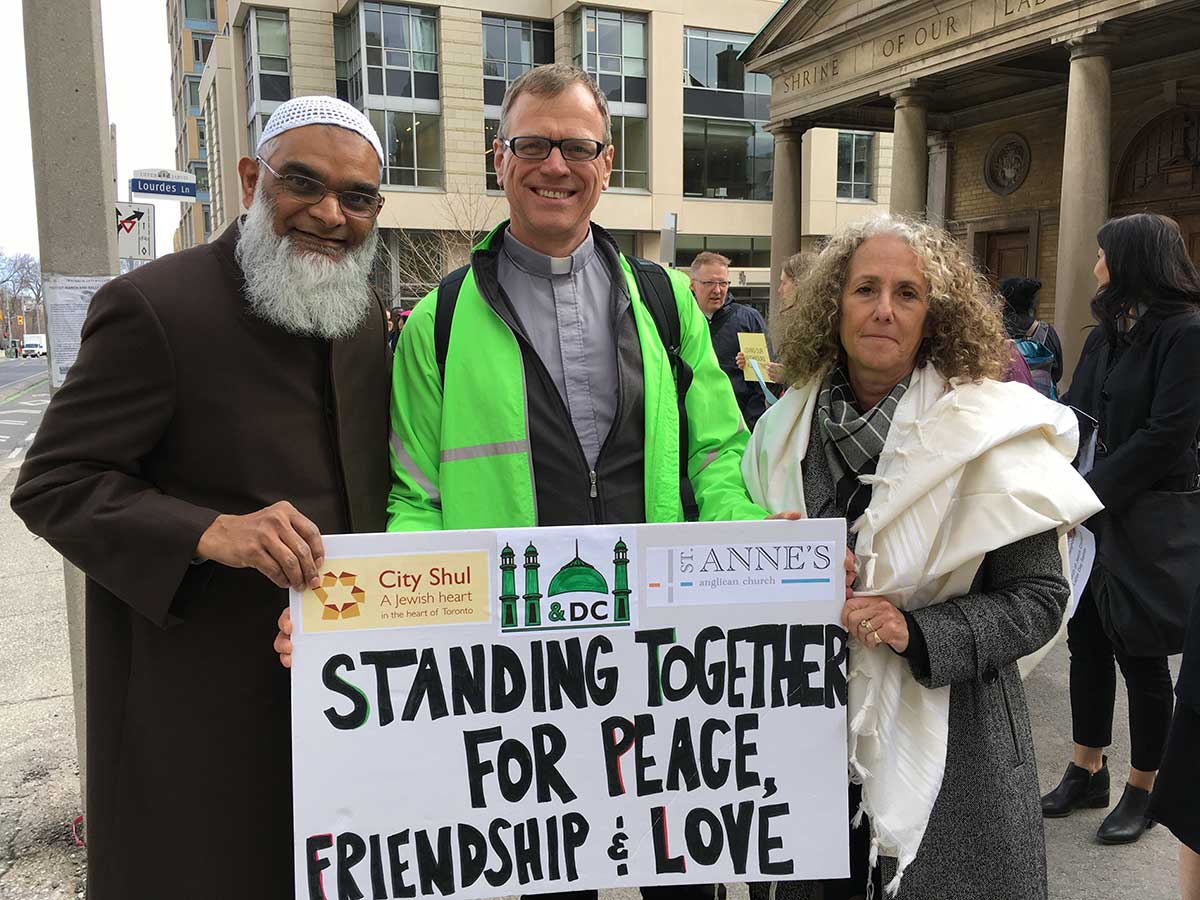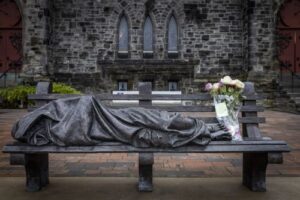Diversity
We welcome everyone — of ALL races, genders, orientations, abilities, cultures, languages, marital statuses, and wherever you may be in your own personal faith journey.
ADO ordained clergy include women and people from the 2SLGBTQI+ community. And, yes, same-sex marriages are possible here.
How to become an Anglican
It’s easy to become an Anglican!
Becoming part of the Anglican community is straightforward – just join in services at your local Anglican church regularly and support its ministry.
You do not need to be a practicing Anglican to be welcome in our churches. Come as you are, and experience how we worship God — we’d love to meet you.
You are welcome here!

God frees us: your path to a fulfilling life
We believe God so loved the world that God chose to become human as Jesus of Nazareth. In his death and resurrection, he breaks through human alienation from God, offering forgiveness and life.
“Believing in the Gospel means trusting that you have already died with Christ and will rise with Christ. It means you have nothing to fear in the face of death or life’s hardships: you belong to God, who is with you in every encounter. Nothing can separate you from the indestructible embrace of God.
Grounded in this deep assurance, that all shall be well, God frees us to focus on living in a good way—showing the courage, compassion, justice, kindness, mercy, peace, hope and love of Jesus in all we think, do, and say, every day.”
-Archbishop Shane A.D. Parker April, 2023 Crosstalk issue (ADO printed newspaper)
You are welcome here! Join your local Anglican church for worship and community.
What to expect: Your visit to an Anglican church
Anglican services are rooted in common prayer, drawing from the rich tradition of the Book of Common Prayer and the modern Book of Alternative Services (1985). Each community has its unique flavour, but strong commonalities unite us all.
The Eucharist is central to many Sunday services, complemented by morning, evening prayers and services throughout the week. It can start with community gathering and Scripture reflection. Then service brings the world’s and the community’s needs to God in prayer and partake in the sacred meal of bread and wine.
Anglican services follow a structured pattern. Anglicans observe six church seasons and lectionary-prescribed Bible readings. Services may be held in traditional church buildings or alternative spaces.
Anglican worship is enhanced by sacred symbols, such as altars, fonts, crosses, and candles. Church life varies and often offer programs like Christian education, Bible studies, support groups, arts, music, and social justice initiatives.
Becoming Anglican: Related Questions & Answers
Have another question? Please contact the priest at your local Anglican church. They will be pleased to speak with you and answer any questions.
This map and Find-A-Church tool will help you find Anglican churches in our ADO region.
You can search by name or location to find a church near you.
Yes, in principle, but permission must first be sought from the diocesan [ADO region] bishop. You will need to apply for permission through the parish priest.
In our ADO region, priests are permitted to perform same-sex marriages.
Please contact the priest in the church where you wish to get married to find out more.
You can become a member of the Anglican Church of Canada (“an Anglican”) by regularly attending your local Anglican church and contributing to its life and work (its “ministry”).
That is all it takes – and Anglican churches welcome everyone.
You can find your local ADO Anglican church here.
The Anglican Church of Canada has its roots in the Church of England, which separated from the Roman Catholic Church in the 16th century. Influenced by the Protestant Reformation, the new English church simplified rituals and introduced the Book of Common Prayer (1549), which enabled services in English instead of Latin. At the same time, the church preserved certain traditions, including the early church creeds and the succession of bishops from the line of the apostles. Because of this history, Anglicanism is sometimes referred to as “Reformed Catholicism.”
Anglicanism travelled abroad with British colonial expansion. In 1578, near present-day Iqaluit, NU, a chaplain celebrated the Eucharist as a member of Martin Frobisher’s Arctic expedition. This was the first Anglican Eucharist in what is now Canada, but it wasn’t until the 18th and 19th centuries that Anglicanism truly took hold, as military chaplains, Loyalists, and British immigrants fanned out and settled across the growing colony.
Missionaries arrived as well, endeavouring to meet the spiritual needs of settlers and to evangelize Indigenous Peoples.
Gradually the Canadian church carved out its own identity. In 1787, Charles Inglis of Nova Scotia became the first bishop in British North America. More dioceses cohered as the population grew, and in 1893, the dioceses created the national body of General Synod. In 1955, the church changed its name from “the Church of England in the Dominion of Canada” to “the Anglican Church of Canada.”
Today the Anglican Church of Canada is an independent, self-governing church in communion with the other 44 churches of the worldwide Anglican Communion. It includes more than 500,000 members in nearly 1,700 parishes, and like Canada, the church has become culturally diverse. On any given Sunday the tradition of common prayer is expressed across Canada in many languages, including Inuktitut, French, Spanish, and Cree.
-Provided by the Anglican Church of Canada

“Anglican prayers reflect our strong belief in the goodness of creation. Nature is God’s creation and a source of God’s revelation. God created humans as a part of the natural world and made us stewards of creation.
We have a responsibility to care for the environment. Likewise, we believe we are called to work toward making society a just and nurturing place for all people.”
-Dr. Patricia Bays, Anglican Diocese of Ottawa (ADO)
Interested in becoming Anglican or visiting your local church?
Clergy at any parish will be pleased to answer your questions.

